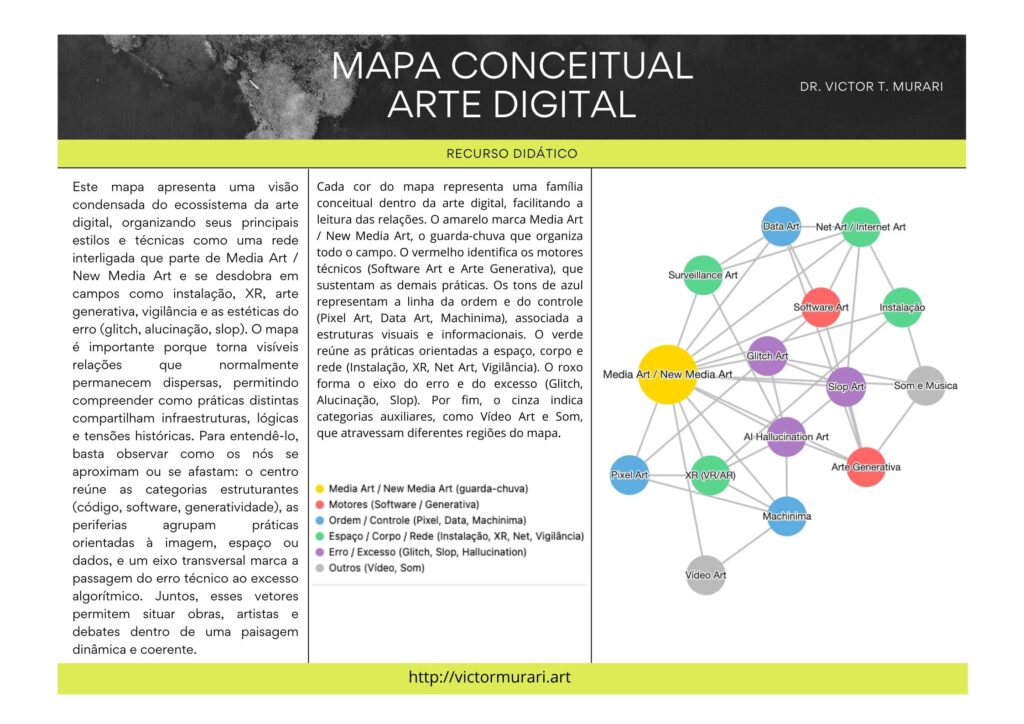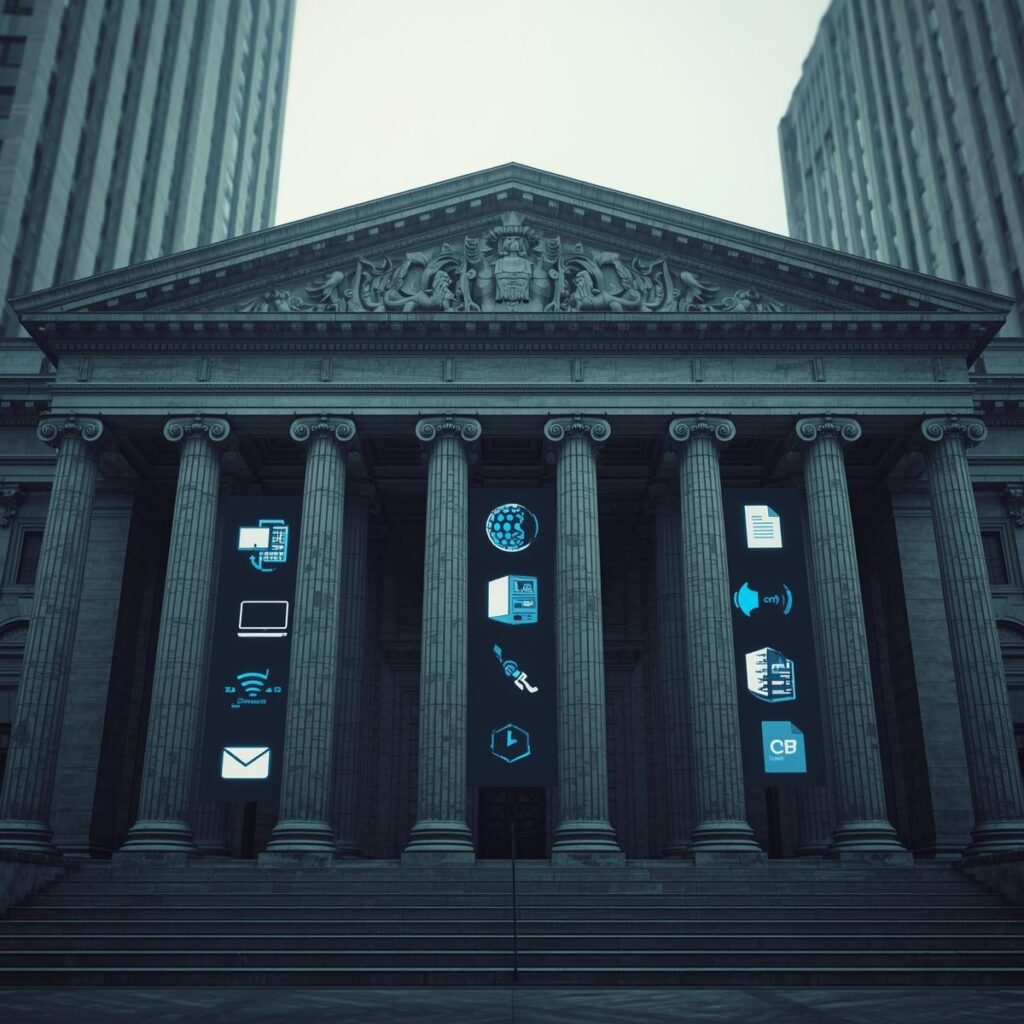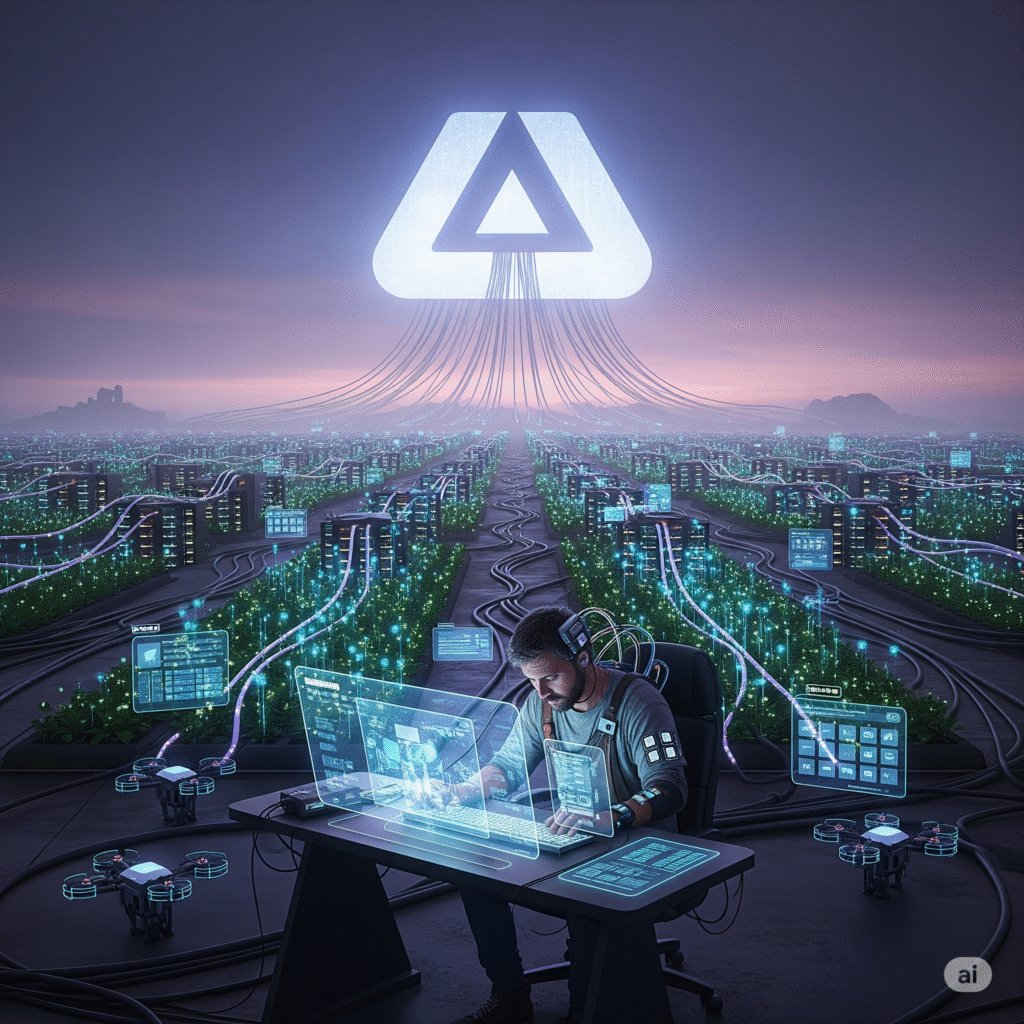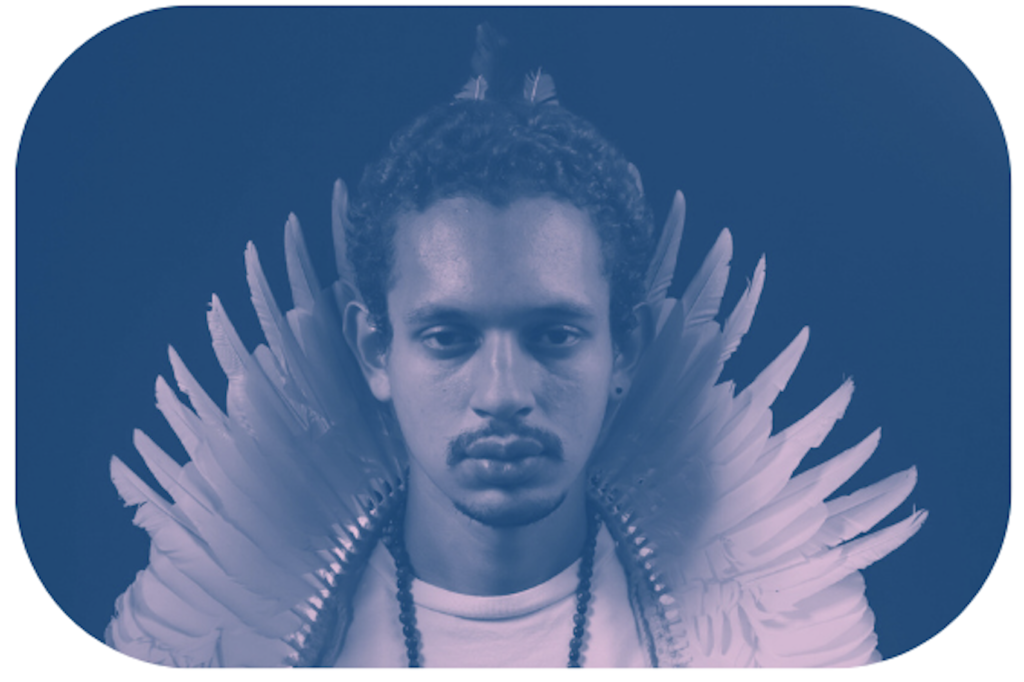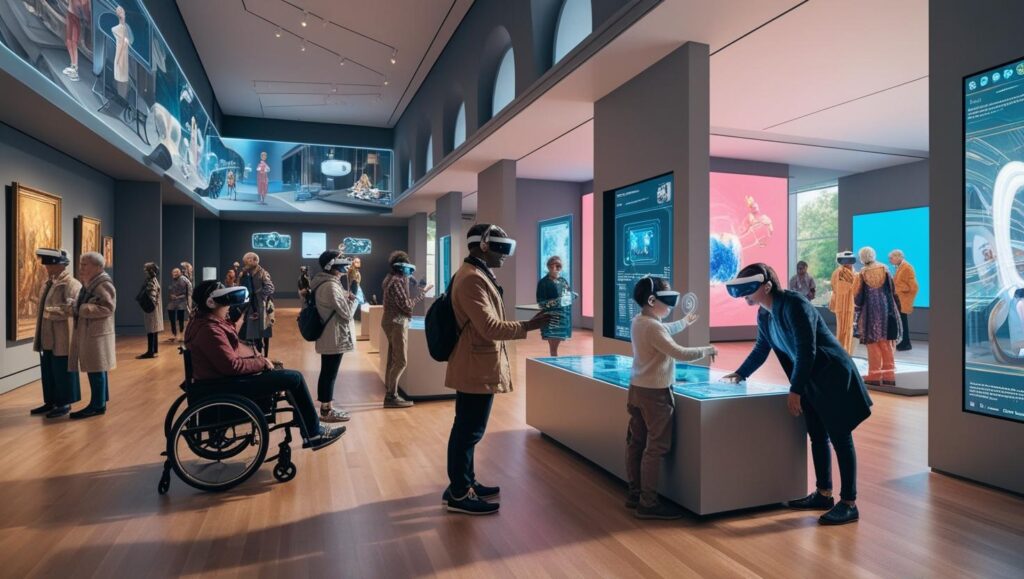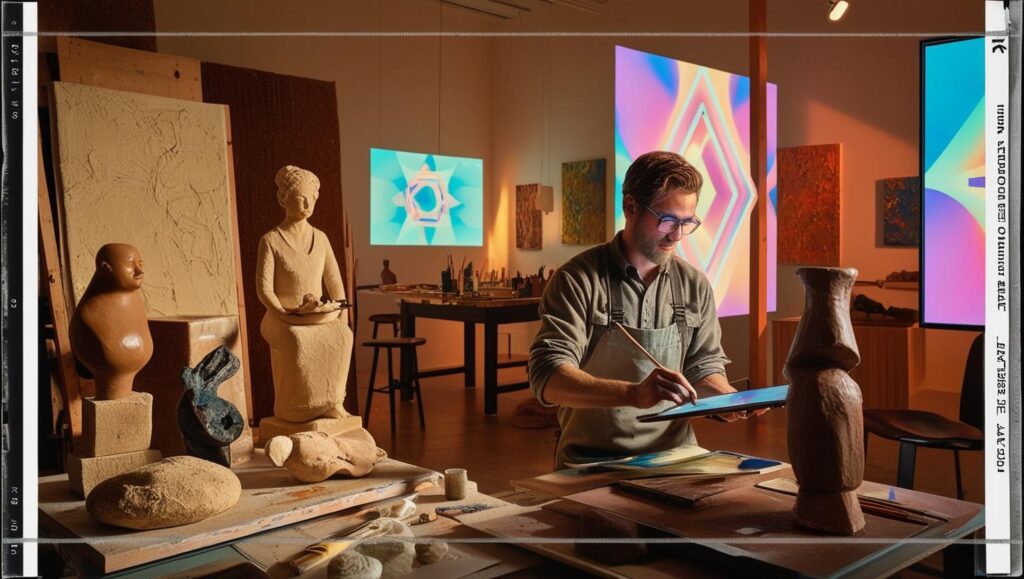🇧🇷 Mapa Conceitual de Arte digital
A arte digital é um dos campos da arte contemporânea que abriga práticas artísticas desenvolvidas por meio de tecnologias digitais. Quando pensamos nesse ecossistema, é útil imaginá-lo como um macrossistema que sustenta linguagens diversas que vão desde experimentos algorítmicos até ambientes imersivos. Nesse conjunto, a Media Art aparece como a categoria geral que acolhe formas […]
🇧🇷 Mapa Conceitual de Arte digital Read More »

